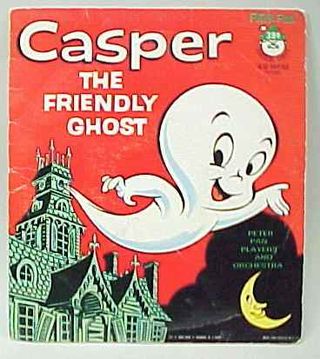Psychiatry
Ghostwriting and Ghostbusters
When drug companies turn to ghostwriting agencies to fabricate evidence.
Posted October 9, 2010

When Sarah Palin's publisher hired a ghostwriter to write as if she were Sarah Palin, few Americans complained. I found that curious. Only a handful of people could have believed that Palin had actually sat down to write and complete Going Rogue in a matter of weeks, especially when it surfaced rather quickly that Lynn Vincent had been hired to carry out the task. Yet the public was invited to buy the illusion that Palin had in fact written a 432-page autobiography. Many Americans were clearly very pleased to hand over their cash for it. For them, we must assume, whether Going Rogue is by Sarah Palin or "by" Sarah Palin is irrelevant. Even as autobiography, it apparently doesn't matter.
I've been wondering about that uninterest lately, because of its marked comparison with a good example of when reliable authorship is of the highest importance. Last month, further evidence came to light in the Public Library of Science, a peer-reviewed, open-access journal, that Wyeth had hired ghostwriting agencies to plant scholarly articles with fabricated evidence about their product. The aim—and the result—was to place said "evidence" in highly reputable medical journals, where doctors and clinicians would invoke it as the grounds for prescribing the treatment to patients. In the most recent case, the issue was Hormone Replacement Therapy, or HRT.
According to Ben Goldacre at The Guardian, "the latest documents come from a court case brought against Wyeth by around 14,000 patients who developed breast cancer while taking Prempro, the hormone replacement therapy (HRT)."
Continues Goldacre, "The open access journal PLoS Medicine, acting with the New York Times, argued successfully in court that 1,500 documents which detailed the ghostwriting should be placed in the public domain, because they represent information on a potential threat to public health."
"Now, PLoS has published the first academic analysis of these documents, which is free to access online."
"HRT has a rocky history," Goldacre continues. "Initially the panacea to all ills, by 1998 the HERS trial showed it did not prevent cardiovascular events and by 2002 the Women's Health Initiative showed it increased the risk of breast cancer and stroke. We now know it increases the risk of dementia and incontinence."
According to the editors at PLoS, "ghostwriting," of the kind flagrantly practiced by Wyeth, "is the dirty little secret of medical publishing." And the secret "just got bigger," they rightly observe, with the journal's now-legal ability to document Wyeth's Hall of Shame, its "Ghostwriting Archive." The archive contains all of those 1,500 documents, each as carefully cultivated in its fabrication of evidence as Lynn Vincent was in channeling Sarah Palin.
"If you are an editor, author, reviewer, or reader of medical journals," the PLoS editors caution, "or if you depend on your doctor or health care provider getting unbiased information from medical journals, then the 1,500 documents now hosted on the PLoS Medicine Web site should make you very concerned and angry. Because, quite simply, the story told in these documents amounts to one of the most compelling expositions ever seen of the systematic manipulation and abuse of scholarly publishing by the pharmaceutical industry and its commercial partners in their attempt to influence the health care decisions of physicians and the general public."
I'll have more to say in a future post about the ghostwriting efforts of the Anglo-American pharma giant GlaxoSmithKline, which had the nerve to dub its "shell" program "CASPPER," an acronym for "Case Study Publications for Peer Review," a strongly incriminating confidential document. But CASPPER is also one of those acronyms doubtless created in such a way as to bring to mind the cute children's cartoon, Casper the Friendly Ghost.

We get the joke. Yes, the "Friendly Ghost" who just happened to ghostwrite a whole set of articles that ended up in who-knows-what medical and psychiatric journals. As I say, more on this to come.
The "Wyeth Ghostwriting Archive" can be read—and searched—here.
As to Wyeth and GlaxoSmithKline, maybe the public needs to say, "Boo." Or, at the very least, "We've got your number."
christopherlane.org Follow me on Twitter @christophlane


